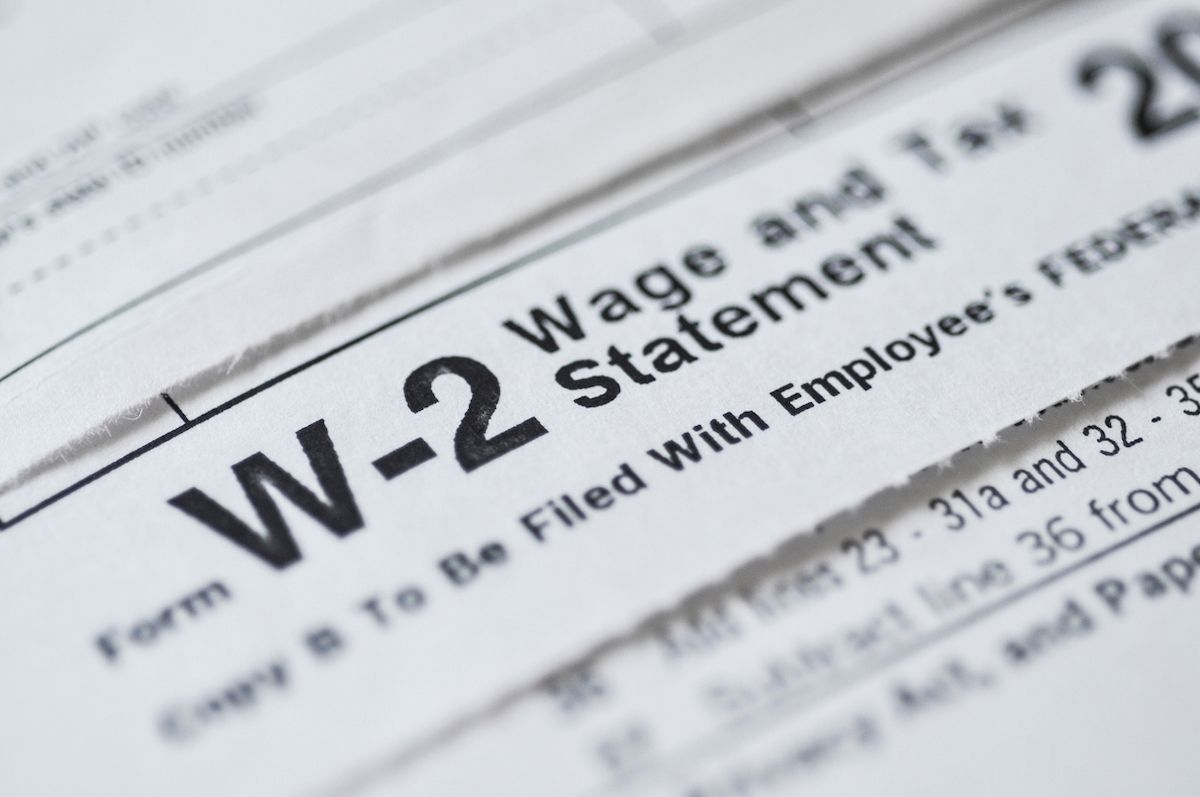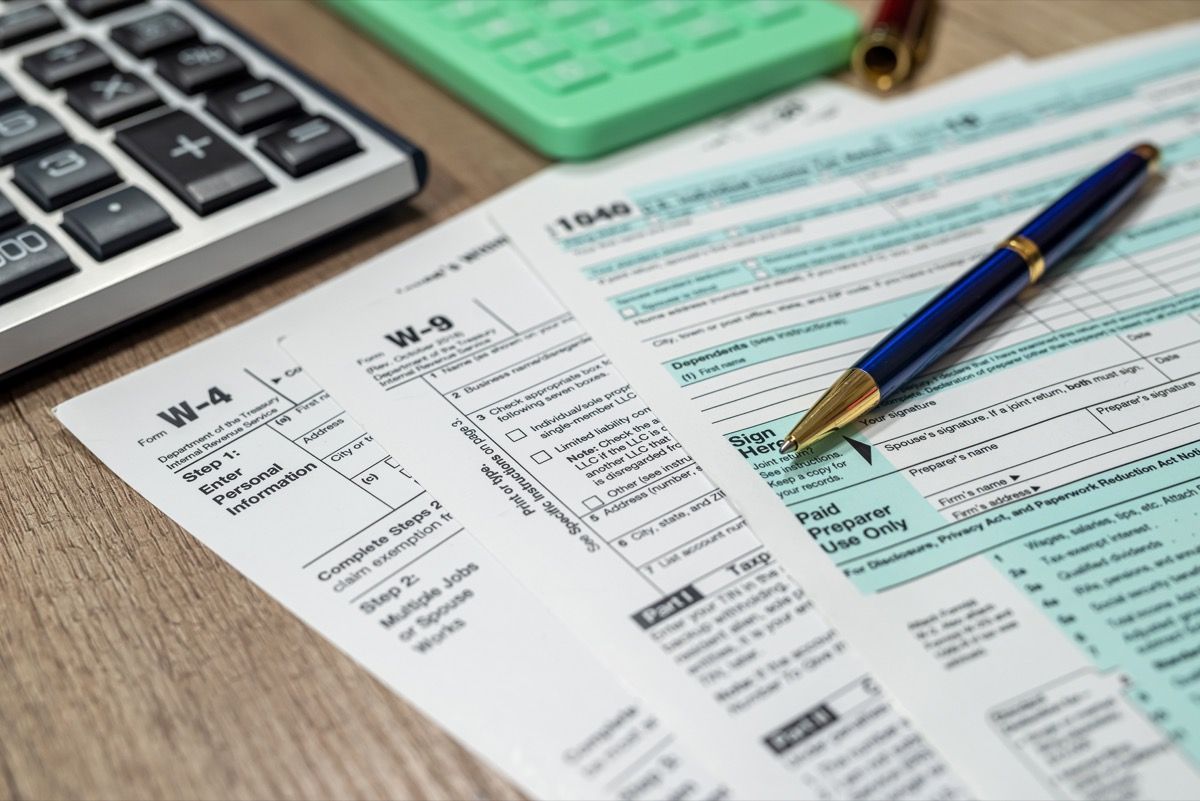Accountants Reveal “Surprise” Tax Errors That Cost You Big and How to Avoid Them

Unless you make your living as an accountant, the mere thought of doing your taxes can be overwhelming. And for those of us who have a few different jobs or are filing jointly for the first time, it can be even more treacherous to navigate ever-changing Internal Revenue Service (IRS) guidelines. It wouldn’t be such a stressor if you didn’t have to worry about everything being letter-perfect, but the reality is that even honest mistakes can end up costing you big. With that in mind, accountants and financial experts are revealing the “surprise” tax errors you could be making. Read on to find out how you can avoid a big bill.
RELATED: IRS Issues New Alert on 5 Things You Must Declare on Your Taxes This Year.
You may be slapped with a bill if you have multiple jobs.

In today’s economy, it’s not unusual for people to have more than one job. But if you’re juggling multiple gigs, you could run into trouble when it comes to your taxes.
Withholding problems are “always a surprise” for employees with a few jobs, JoAnn May, certified public accountant (CPA) and principal at Forest Asset Management in Illinois, tells CNBC. Each company you work for will withhold taxes from your paychecks, but they’re not going to know how much you make in total.
“Those employers are going to withhold a pretty low percentage,” May explains, meaning you might not have had enough taxes taken out and could end up owing money instead of getting a refund.
RELATED: IRS Warns 20% of Taxpayers Don’t Claim Major Refund Credit—Are You Eligible?
You could owe money if you change jobs.

Getting a new job is already a bit stressful, as you have to get adjusted to your new responsibilities and company culture. During this transition, taxes might not necessarily be top-of-mind.
But according to May, if you change from a job that paid you $100,000 for the first eight months of the year to a job that paid $50,000 for the last four months, that could create an issue. The second employer probably wouldn’t withhold enough from your paycheck, which is something May told CNBC she sees often.
RELATED: IRS Announces Major Tax Filing Changes—Are You Affected?
An unreported major life event might lead to a tax bill.

Another common error? Experiencing a major life event during the year—which can include marriage, buying a new home, having a baby, or getting a divorce—and not reporting it.
If you don’t ask your employer to update your W-4 in these situations, you may end up owing the IRS money, certified financial planner (CFP) and enrolled agent John Loyd, who owns The Wealth Planner in Fort Worth, Texas, tells CNBC.
After getting divorced, filing status changes from married filing jointly to single filer, Loyd said. This then cuts your standard deduction in half.
For example, in 2023, married couples filing jointly had a standard deduction of $27,700, while single filers had a standard deduction of $13,850. So, in the event you don’t update to “single,” there’s a chance you won’t pay enough taxes during the year, and end up with a hefty bill.
Here’s how to avoid these issues.

While we just have to keep our fingers crossed with our 2023 tax returns, in the future, there are a few things you can do to avoid unpleasant tax bills. And you should start right now: Experts and the IRS recommend making adjustments to your withholdings early in the year.
After that, you should also check in from time to time and make any further adjustments as needed. In that case, fill out a new W-4 and submit it to your employer.
Not sure where to start? Use the IRS’ Tax Withholding Estimator to help you determine how much you should be withholding.
“There are several reasons to check your withholding,” the IRS states. “It can protect against having too little tax withheld and facing an unexpected tax bill or penalty at tax time next year [and] let you adjust your tax withheld up front, so you receive a bigger paycheck and smaller refund at tax time.”
RELATED: For more up-to-date information, sign up for our daily newsletter.
Best Life offers the most up-to-date financial information from top experts and the latest news and research, but our content is not meant to be a substitute for professional guidance. When it comes to the money you’re spending, saving, or investing, always consult your financial advisor directly.